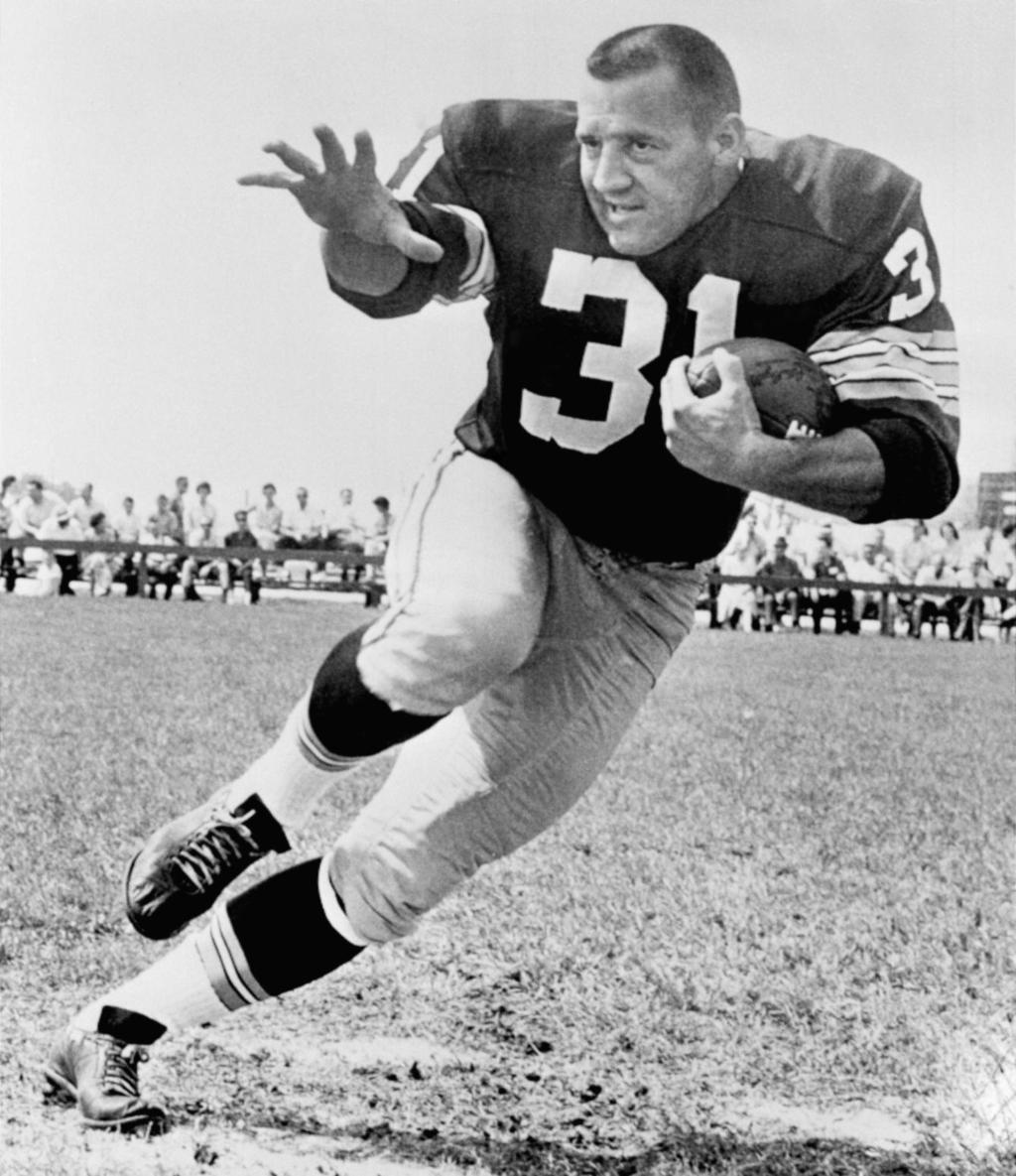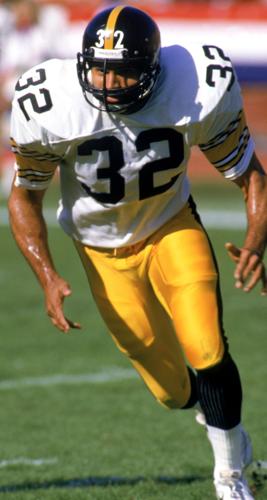Mercury Morris
Teams
Miami Dolphins (1969-1975)
San Diego Chargers (1976)
Playoffs
Appearances - 5 (1970,1971,1972,1973,1974)
Conf Champ Games - 3 (1971,1972,1973)
Super Bowls - 3 (1971,1972,1973)
Championships - 2 (1972,1973)
Awards and Honors
Pro Bowl - 3 (1971,1972,1973)
All-Time Ranks
Yards per Rush - #9
League Leads
Rushing Yards (#10-1972)
Rushing Touchdowns (#1-1972, #3-1973)
Yards per Rush (#1-1973, #3-1972)
Rushing Yards per Game (#7-1973)
Total Touchdowns (#4-1972, #8-1973)
Yards per Touch (#1-1973, #8-1972)
Mercury Morris set the single game, single season, and career college rushing yard records while playing for West Texas State, though the season record was broken a week later, and the career record 2 years later. He was drafted in the third round of the 1969 NFL/AFL Draft by the Miami Dolphins.
Morris was mostly used as a kick returner in his first 3 seasons, but when he did get the chance to carry the ball, he was excellent. In 1970, he averaged 6.8 yards per carry, and he averaged 5.5 in 1971, both of which would have led the league if he had enough carries. He was named to the Pro Bowl as a kick returner in 1971.
He became Miami's starter in 1972, and rushed for exactly 1000 yards, his career high, and led the league with 12 touchdowns while picking up 5.3 yards per carry. The Dolphins went undefeated that season, and Morris had 76 rushing yards in the AFC Championship game, followed by 34 yards in Miami's 14-7 Super Bowl win over the Redskins.
In 1973, he led the league by averaging 6.4 yards per carry and 6.6 yards per touch, and he finished with 954 yards and 10 touchdowns. The Dolphins returned to the Super Bowl that year after Morris had 86 yards on 14 carries in the AFC Championship Game, and he added another 34 yards in the Super Bowl, where the Dolphins beat the Vikings 24-7.
Morris suffered a knee injury early in 1974 and was limited to only 5 games before a neck injury ended his season. He had a decent comeback season in 1975, rushing for 875 yards, but the Dolphins chose to trade him away to the Chargers after the season. His neck continued to bother him during the 1976 season, so he decided to retire after one season out west.
Morris did not rack up huge rushing numbers, as he shared the backfield with Larry Csonka and Jim Kiick through most of his career, but he was one of the most efficient runners of all time, averaging 5.1 yards per carry for his career, good enough to land him in the top 10 all time. His two best years coincided with Miami's back to back championships, including their undefeated season, and Morris is definitely one of the best of all time.












:format(jpeg)/cdn.vox-cdn.com/uploads/chorus_image/image/51135905/82351400.0.jpg)




















:no_upscale()/cdn.vox-cdn.com/uploads/chorus_asset/file/22472266/91160569.jpg)










